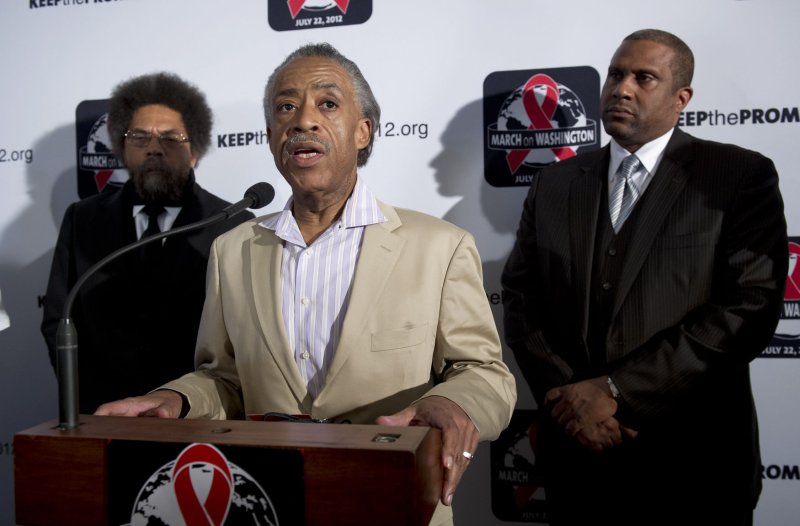Men HIV free after bone marrow transplant and ending anti-retrovirals.
Rev. Al Sharpton delivers remarks during the Keep the Promise on HIV/AIDS rally. UPI/Kevin Dietsch |
License Photo
KUALA LUMPUR, Indonesia, July 3 (UPI) -- Two men with longstanding HIV infections who had bone marrow transplants no longer need anti-retroviral therapy, U.S. researchers say.
Dr. Timothy Henrich and Dr. Daniel Kuritzkes, physician-researchers in the Division of Infectious Diseases at Brigham and Women's Hospital in Boston said one patient stopped anti-retroviral therapy 15 weeks ago, the other stopped seven weeks ago.
Last summer, Henrich and Kuritzkes announced the virus was easily detected in blood lymphocytes of both men prior to their transplants and became undetectable by eight months post-transplant. However, at the time, the men remained on anti-retroviral therapy.
Since coming off anti-retroviral therapy this spring, the men continue to have no detectable HIV DNA or RNA in their blood, the researchers said.
"While these results are exciting, they do not yet indicate that the men have been cured," Henrich said in a statement. "Long-term follow up of at least one year will be required to understand the full impact of a bone marrow transplant on HIV persistence."
The study demonstrated at least a 1,000-10,000 fold reduction in the size of the HIV reservoir in the peripheral blood of these two patients, but the virus could still be present in other tissues such as the brain or gastrointestinal track, Henrich said.
"If virus does return, it would suggest that these other sites are an important reservoir of infectious virus and new approaches to measuring the reservoir at relevant sites will be needed to guide the development of HIV curative strategies," Henrich said.
The findings were presented Wednesday at the International AIDS Society Conference in Kuala Lumpur, Malaysia.















